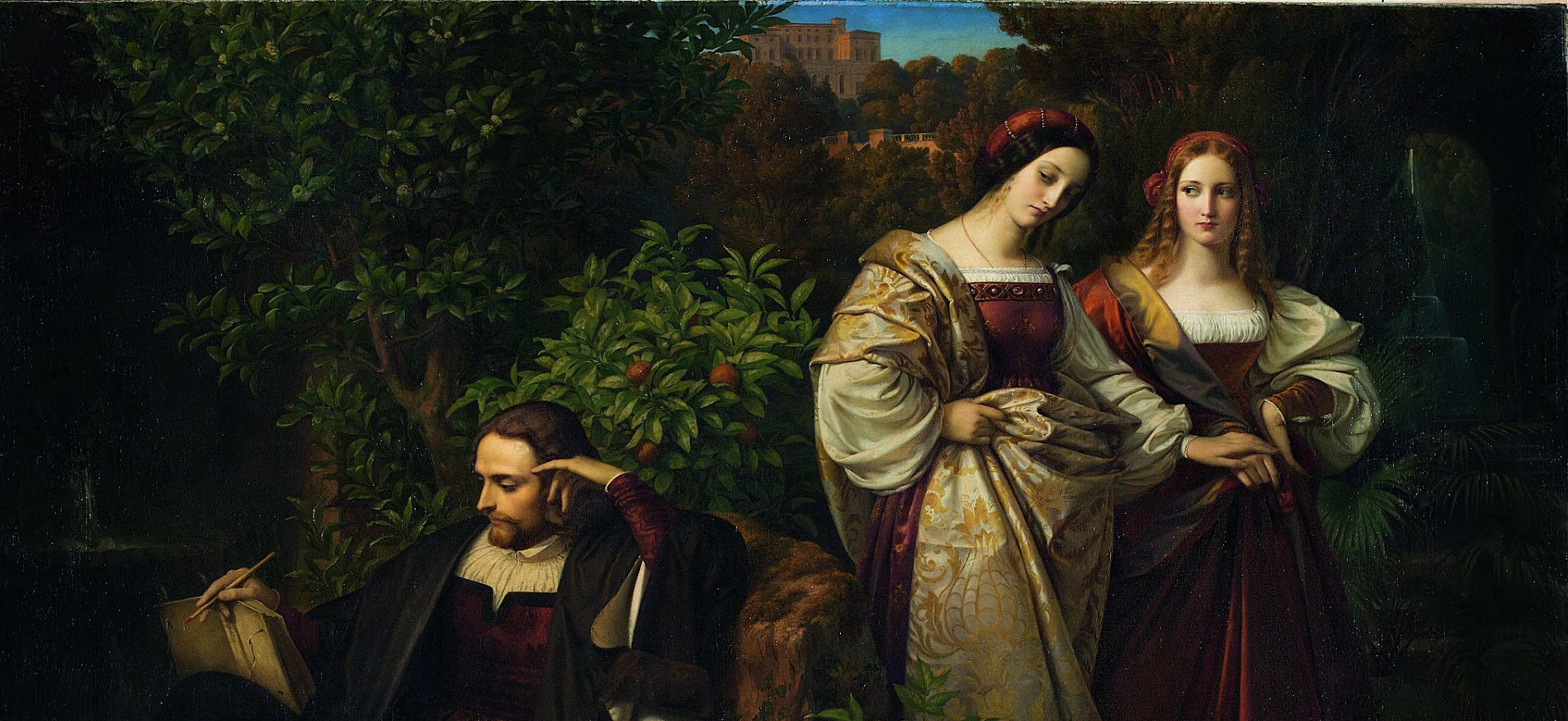July 2024
by The Revd Canon Anna Macham
Recent years have seen an explosion of interest in female composers throughout the ages (see for example 21 of the greatest women composers in classical music – Classic FM). Figures such as Clara Schumann and Amy Beach have become increasingly known and appreciated, with their pieces often being played on the radio and more widely performed in concert halls.
 Yet not many of these composers are primarily known for their sacred works. Apart from the plainchant of the medieval mystic and nun, Hildegard of Bingen, the female figures I most associated with sacred music historically until recently were not composers at all but Victorian hymn writers such as Cecil Frances Alexander (see All Things Bright and Beautiful – An Irishwoman’s Diary on Cecil Frances Alexander – The Irish Times) or the poet Christina Rossetti, whose hymn “In the bleak midwinter” has become a classic of the Anglican choral repertoire.
Yet not many of these composers are primarily known for their sacred works. Apart from the plainchant of the medieval mystic and nun, Hildegard of Bingen, the female figures I most associated with sacred music historically until recently were not composers at all but Victorian hymn writers such as Cecil Frances Alexander (see All Things Bright and Beautiful – An Irishwoman’s Diary on Cecil Frances Alexander – The Irish Times) or the poet Christina Rossetti, whose hymn “In the bleak midwinter” has become a classic of the Anglican choral repertoire.
While the music lists of our Cathedrals increasingly feature female composers, many of these are contemporary, such as Roxanna Panufnik, Dobrinka Tabakova or Kristina Arekelyan. But recent discoveries have revealed that the history of sacred music as we know it is not exclusively male. Every age of its development has had women who against the odds composed sacred music to express their faith and respond to the musical developments of their time.
Often these women expressed their faith in their music in new and unique ways. Leonora d’Este, a sixteenth century princess, and daughter of the famous Lucretia Borgia growing up in Ferrara, for example, was also a nun and abbess. She may have chosen the life of a nun partly because it freed her from the constraints of marriage and politics to be a musician. Although the church authorities tried to ban all but the simplest music in convents, arguing that the nuns should concentrate on the liturgy instead, D’Este’s rich and influential family helped her to maintain the organ in the convent and establish its musical tradition of the highest standards. She is thought to be the composer of the gorgeous motet “Sicut lilium inter spinas”, published in a 1543 collection that, unusually, credited no composer. The work shows great skill in the art of polyphonic writing and the sensuous echoing between the five parts is both novel and hypnotic.
Raffaella Aleotti (c.1575- c.1646) is another nun from Ferrara composing some decades after D’Este in the last Renaissance. As well as directing the 23 singers and instrumentalists who played the harpsichord, lute, bass viol, flute, cornet and trombone in her convent, she is credited with being the first woman to publish a sacred choral work, in 1593, and her motets look forward to a new style of polyphony associated with the Baroque. Like D’Este, setting texts from the Song of Songs such as “Surge, propera amica mea” freed her from the constraints of secular courtly love poetry, which had a male subject and a female object, by allowing her to take the woman’s point of view in works of spiritual love and devotion addressed to Christ.
Moving forward in history and from Italy to Austria, the Viennese composer and contemporary of Mozart and Haydn, Marianna Martines (1744-1812) was revered in her own time for sacred compositions from as her Mass in C, oratorio and psalm settings, to what critics hail as her masterpiece, her setting of the Dixit Dominus (Psalm 109) in 1774. Martines’ independent wealth and high social status helped her to overcome some of the barriers to women composing that were in place at the time, but interestingly religious arguments also played their part. Despite arguments from the bible that associated women’s music with sexual enticement, male admirers of her music also sought to justify their high opinions of her music by comparing her to positive biblical female figures who sing such as Deborah in the Book of Judges.
To explore the rich history of women’s contribution to sacred music enriches a story that so far has felt almost exclusively male. From plainchant to the nineteenth and twentieth century Anglican Choral tradition, it turns out that against the odds female composers were able to break down the barriers set by the Church that it’s often assumed prevented them contributing to this tradition.
===============================
 Anna Macham is Canon Precentor of Salisbury Cathedral, where she is responsible for the Cathedral’s liturgy and music. Previously she was parish priest of St Philip’s Camberwell, an inner-city parish off the Old Kent Road in South East London, and before that was Succentor at Southwark Cathedral and a Chaplain at King’s College London.
Anna Macham is Canon Precentor of Salisbury Cathedral, where she is responsible for the Cathedral’s liturgy and music. Previously she was parish priest of St Philip’s Camberwell, an inner-city parish off the Old Kent Road in South East London, and before that was Succentor at Southwark Cathedral and a Chaplain at King’s College London.
She is leading a half-day online on this subject, from 10am to 1pm, 17 October 2024.
The History of Women in Sacred Music

Leave a Reply
You must be logged in to post a comment.